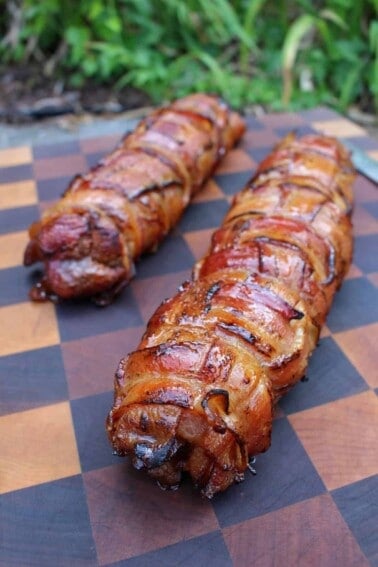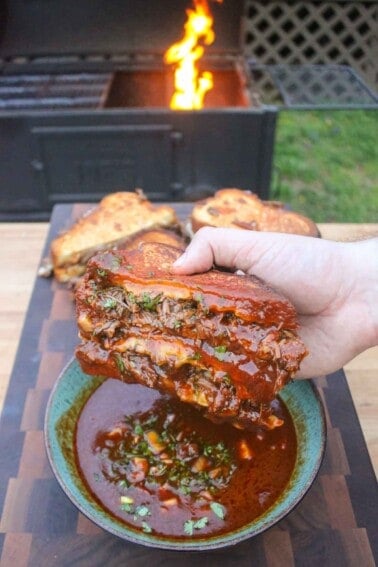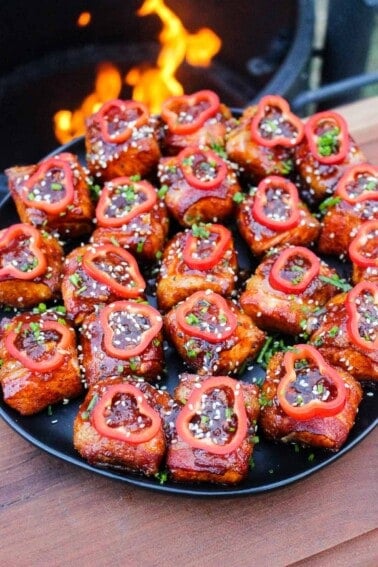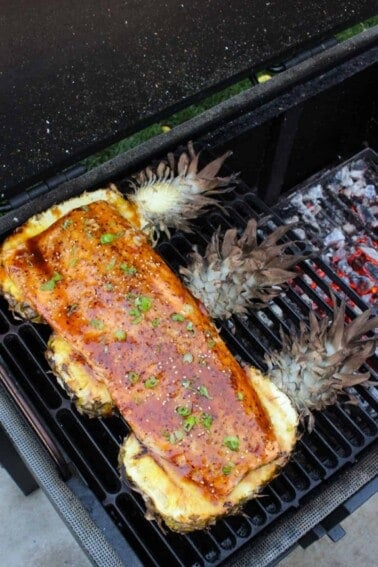Welcome to a unique take on classic steak frites using succulent duck breast and duck fat fries. Duck is a surprisingly versatile and cost-effective alternative to beef that is too good to overlook!

The secret of cooking duck on the grill? A cold skillet sear, with the majority of the cooking on the skin side, yielding rich flavors and caramelized duck skin perfection. And, unlike chicken, duck only needs to reach an internal temperature of 130° degrees F for it to be done and ready to eat.
Why You’ll Love Duck Steak Frites aka Steak Fries
Duck Steak Frites is a twist on the steak frites recipe that will have you rethinking the classic steak dinner from now on. After one forkful of flavorful duck and crispy pommes frites seasoned with my buddy Brad Prose’s new Canyon Crust and Sedona Sand Rubs, you’ll be hooked.
Grilled to smoky perfection over medium-high heat, the duck achieves a crispy exterior and tender interior. Meanwhile, the creamy olive oil aioli adds yet another touch of decadence to the dish, with the citrus notes balancing the richness of the duck.
If you want to explore another duck recipe, check out Seared Duck Breast with Bourbon Cherry Sauce. And, if you love traditional steak frites, try Steak Frites Sandwich, Steak Frites With Garlic Chili Butter, or Nashville Hot Steak Frites.
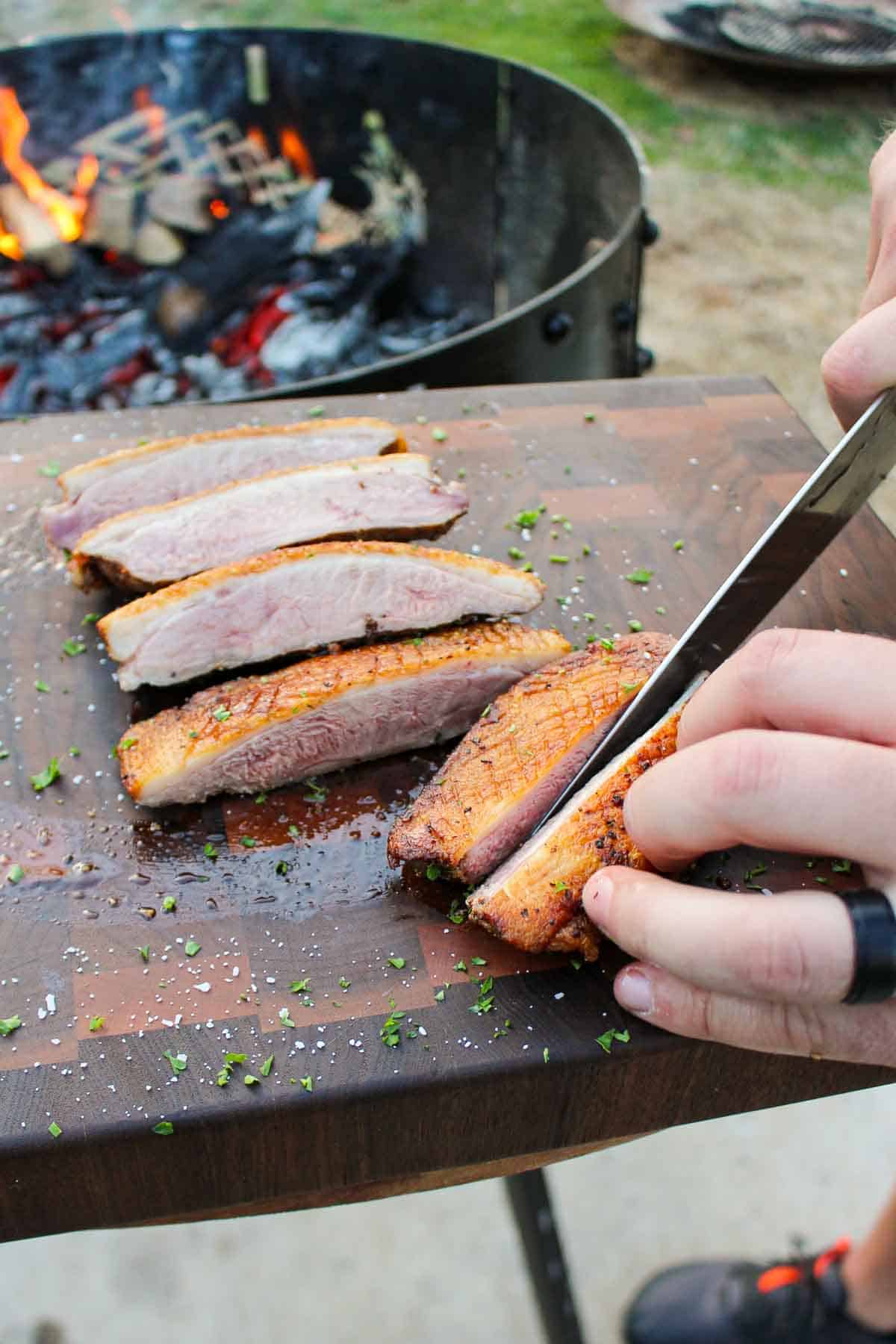
Ingredients
The Duck – Duck breasts and some Canyon Crust Rub (or a simple mix of salt, pepper, and garlic powder) are all the simple ingredients you need for one duckin’ delicious meal.
The Frites (French Fries) – Russets are my go-to potatoes for this recipe. After frying them in duck fat we’ll season them with the Sedona Sand Rub, chopped parsley, and some parmesan cheese.
The Aioli – This is the secret sauce that levels up the duck even more. The smooth immersion comes together with some garlic, egg yolks, olive oil, GLD Hot Sauce, some more Canyon Crust Rub, chives, and some lemon juice.
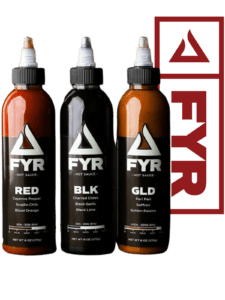
Get stoked for life
This sauce is FYR!
Born from a deep passion for food and flavor. Whether you’re grilling in the backyard or live fire cooking around the world, we have what you need to transform every meal into an adventure.
How to Make Duck Steak Frites
Alright, when you’re ready to dive into the Duck Steak Frites recipe, let’s start by prepping the potatoes for the fries. Slice them into your classic french fry shape and let them chill in an ice bath until you’re ready to throw them into the hot oil.
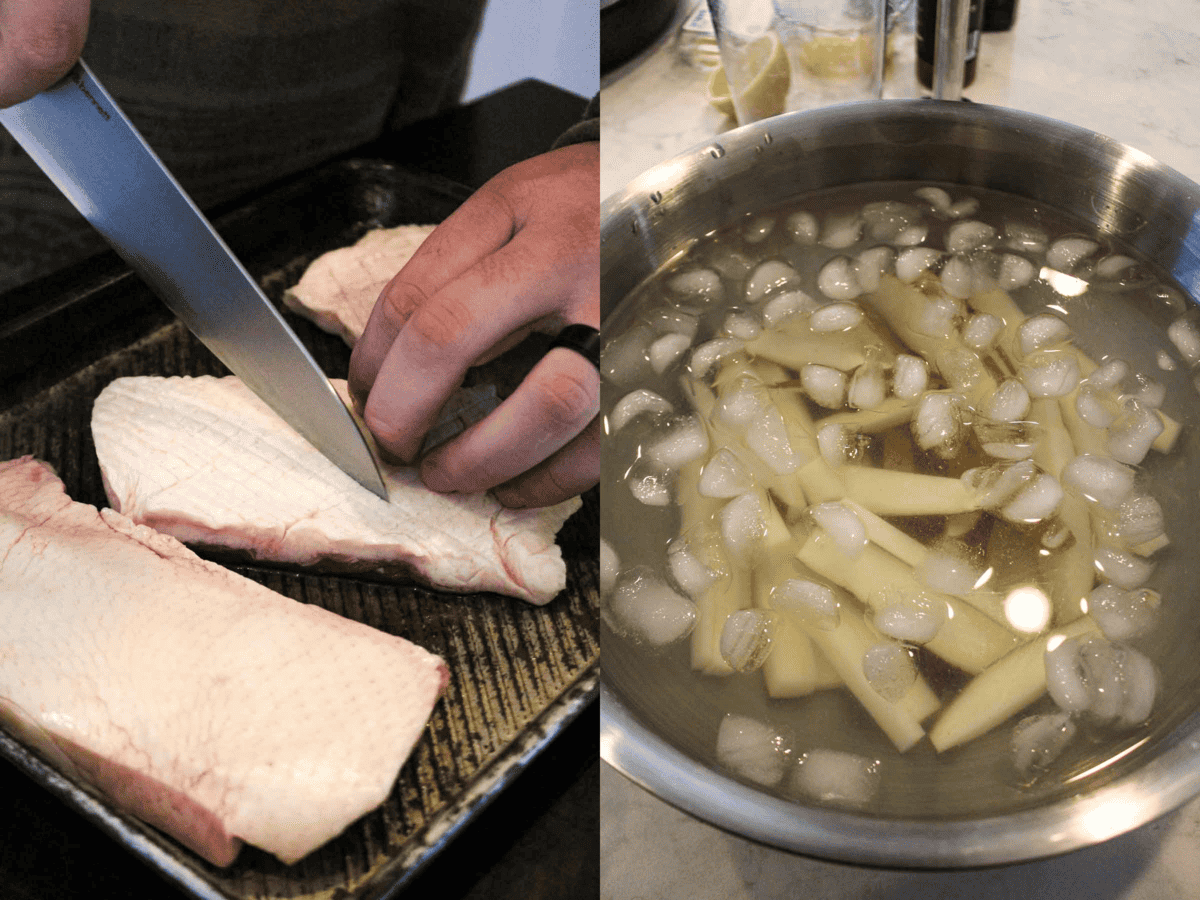
A shortcut for making uniform French fries
If you’re chopping skills are not up for the task of cutting evenly sized French Fries, you may want to invest in another nifty kitchen gadget, a stainless steel French Fry Cutter. It also speeds up the prep time!
Duck
Moving on to the duck, score the skin in a crisscross pattern. Flip it over and generously season the meat side with Canyon Crust Rub (or just use the classic combo of salt, pepper, and garlic powder).
GLD Aioli
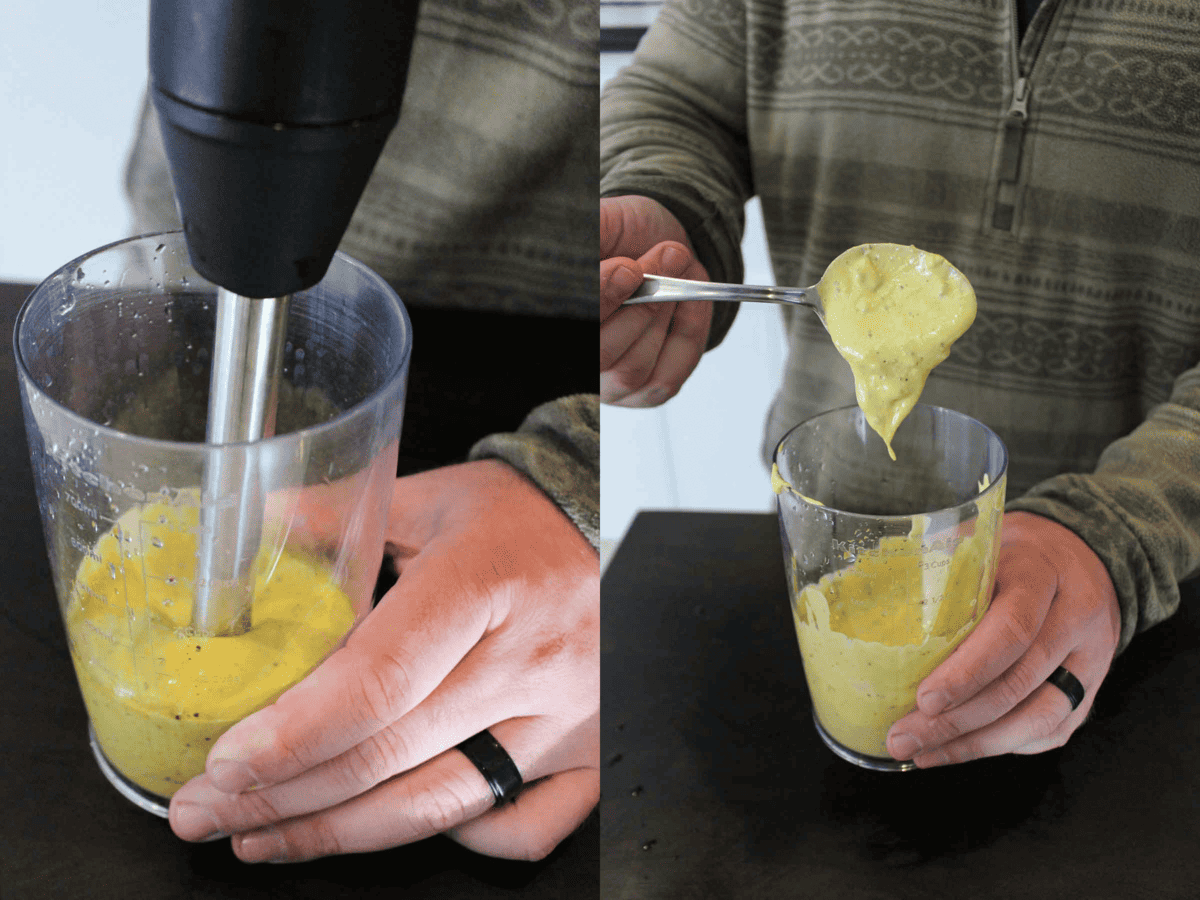
Now, let’s make the most incredible aioli with my GLD Hot Sauce amping up the heat. Toss all the ingredients (except for the chives) into a container, and then blend it well using an immersion blender stick (a must-have kitchen gadget!).
To thicken it, if needed, drizzle in some more oil. Once everything is blended to perfection, fold in the chopped chives and let it chill in the fridge.
Grill Time for the Duck Steak Frites
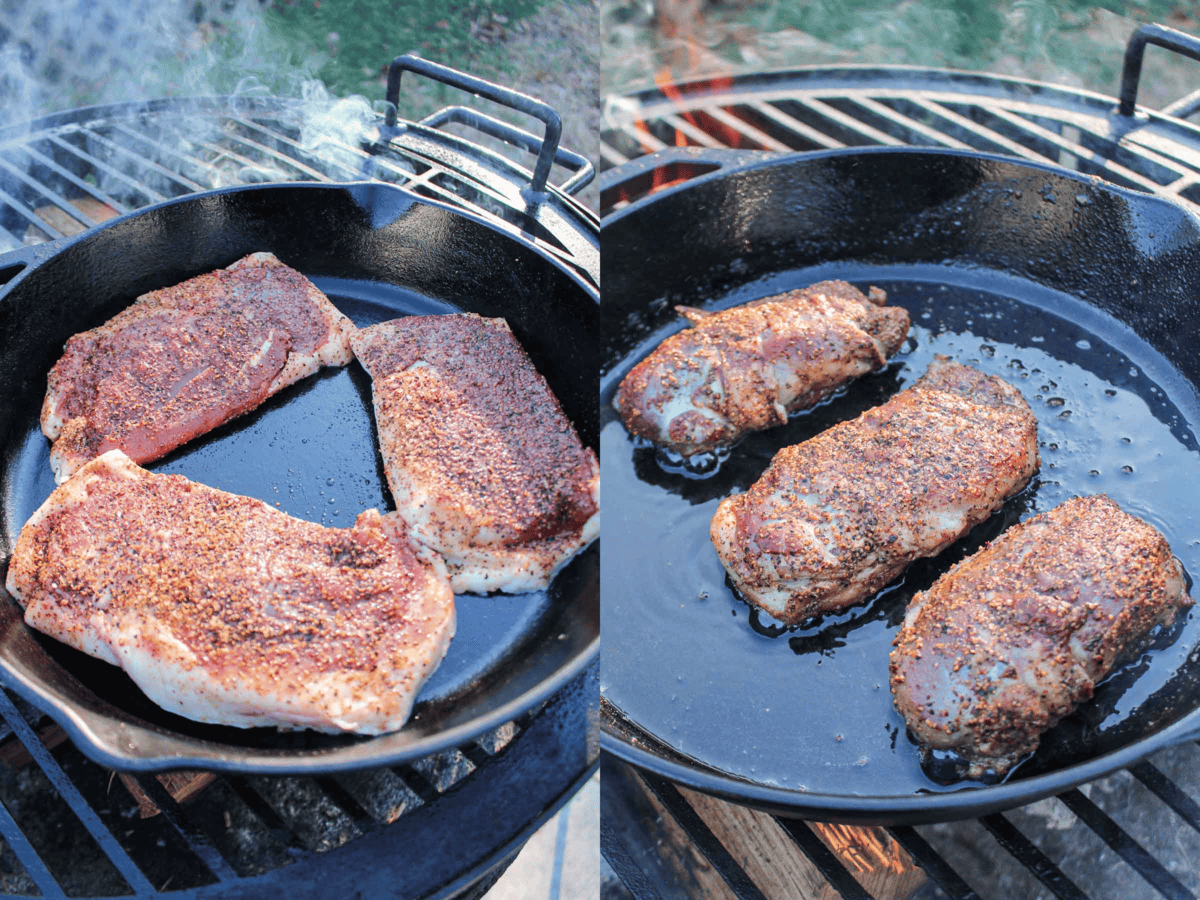
Time to fire up the grill, aiming for a medium-high heat of around 375 degrees F. Drop the duck, fat side down, into a cold cast iron skillet on the grill. Press it down so the fat gets a nice, even sear. Let it sizzle for 12-15 minutes until the fat turns golden brown.
Strain out the extra fat, flip the duck, and give the other side 1-2 minutes until it hits that sweet spot of 130 degrees F inside for a medium-rare perfection. Once done, let it rest for 5-7 minutes.
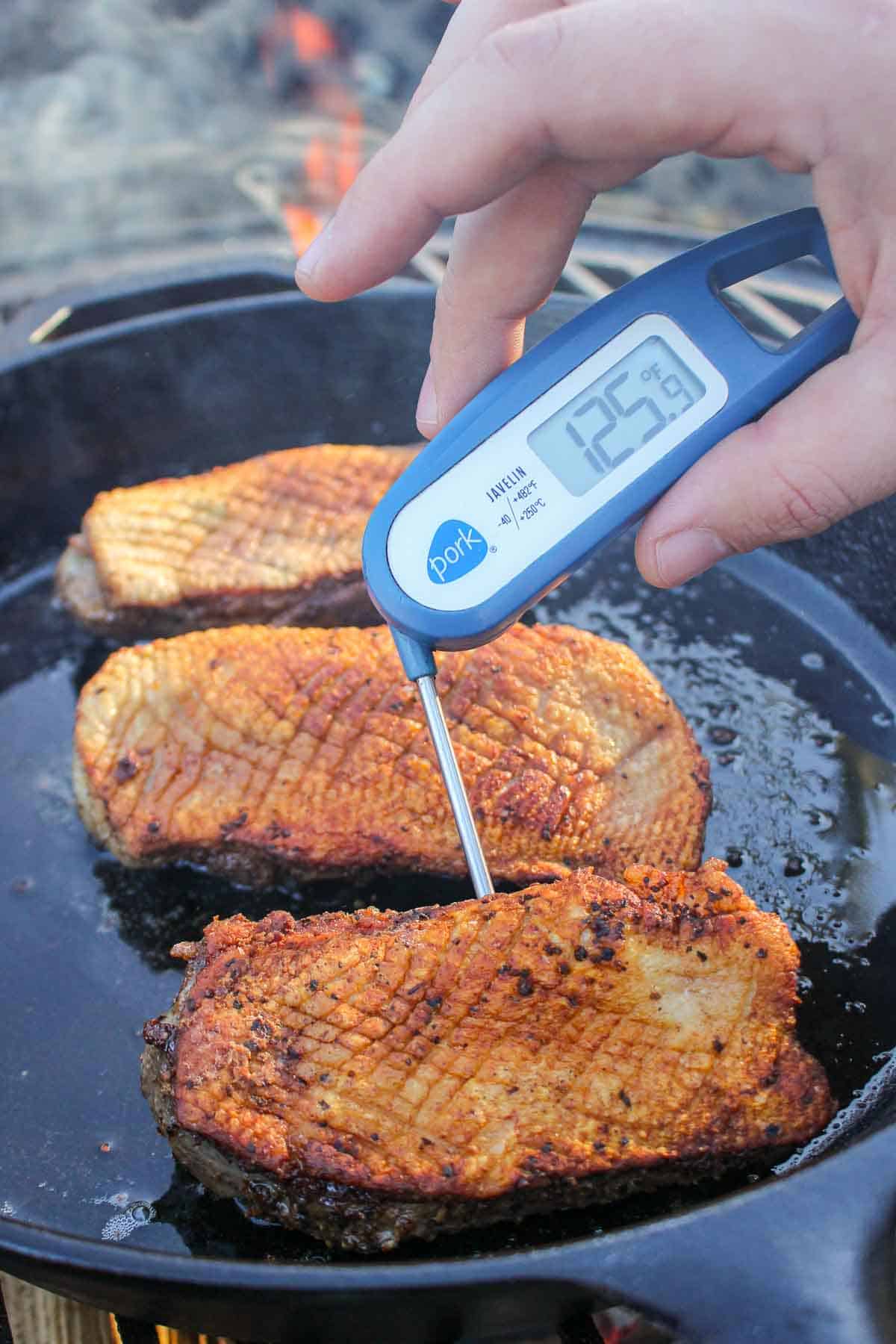
frites
Now, let’s finish the duck frites, cooking the potatoes in the rendered duck fat. Heat a skillet with that excess fat until it reaches a temperature of 350 degrees F. Toss in the fries and cook in a single layer for about 3 minutes on each side until they’re golden brown and soft inside.
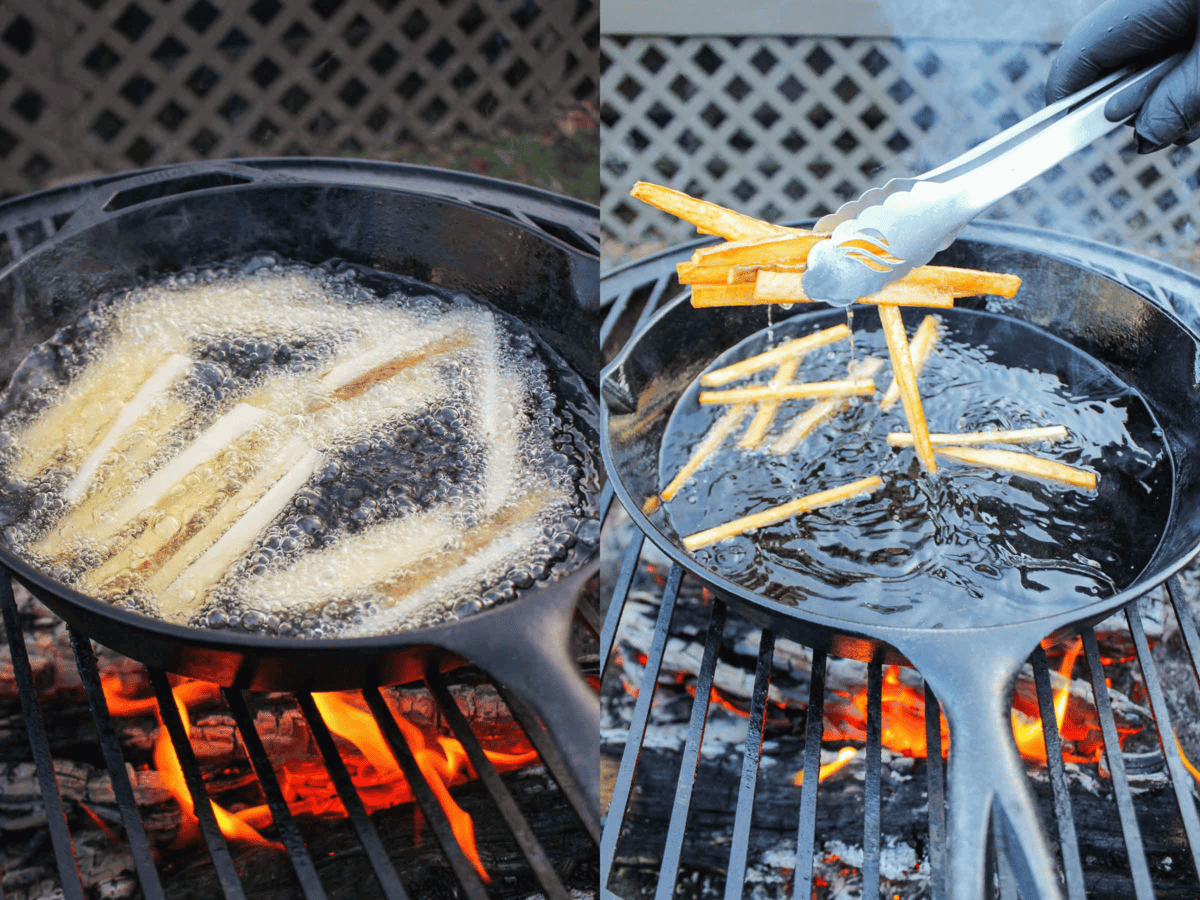
Don’t overcrowd the skillet; do it in 2-3 small batches. Once the cooking process is done, plate them up on a paper towel to soak up any excess oil.
Finally, toss the fries in a bowl with parmesan cheese, Sedona Sand Rub, and some chopped parsley. Set them aside.
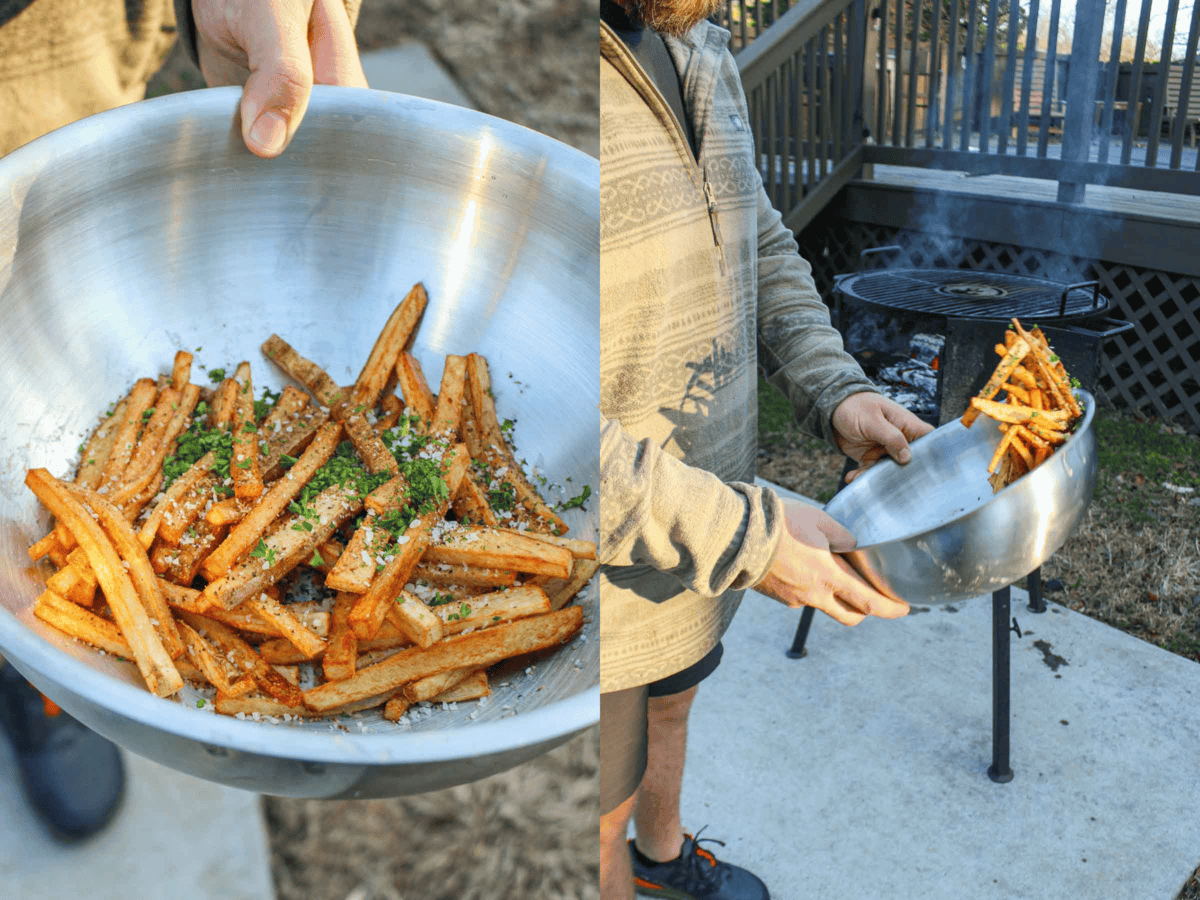
Assembling the Duck Steak Frites
To bring the Duck Steak Frites all together, slice the duck against the grain, serve it up with those mouthwatering fries, and don’t forget to grace the plate with a side of chilled GLD aioli. Now, my friend, it’s time to dig in and savor every delicious bite!
What to Serve with Duck Steak Frites
Looking to balance out the fries with some nutritious veggies? Try some grilled vegetables, such as asparagus or Brussels sprouts to bring a caramelized depth that complements the savory duck.
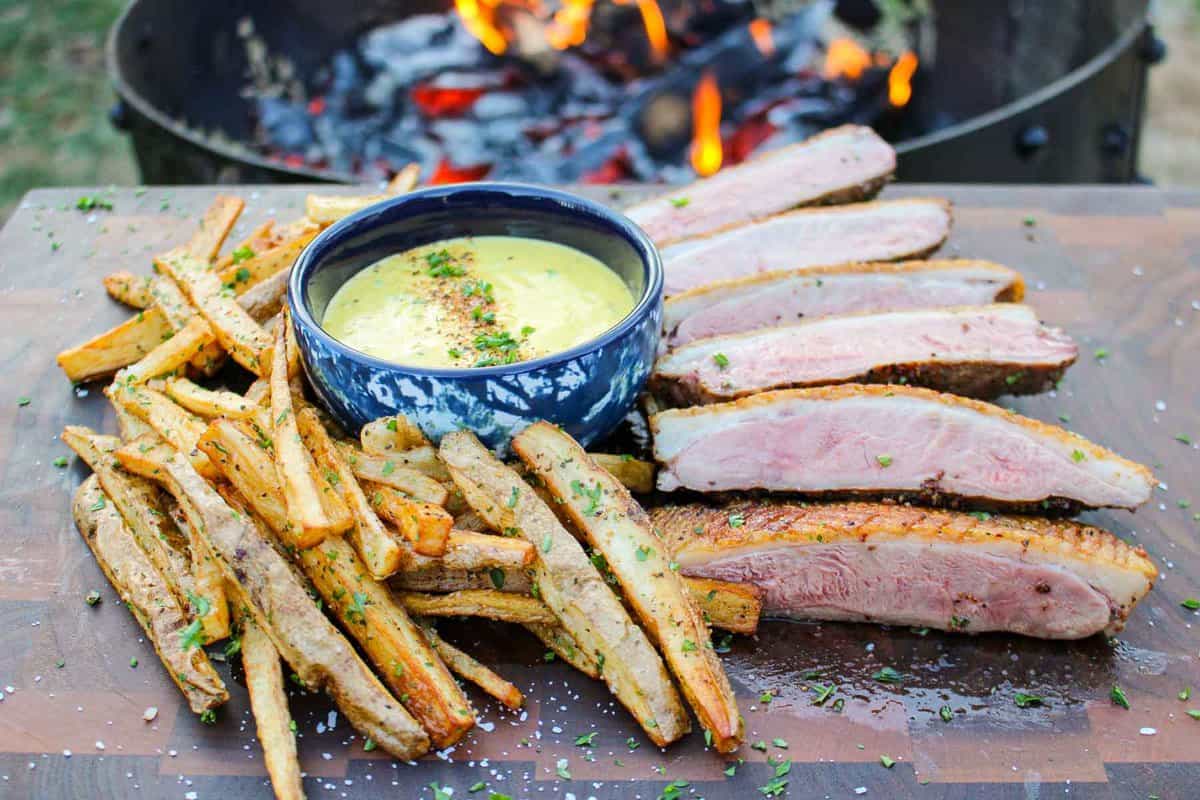
Leftovers & Reheating Duck Steak Frites
Handling leftovers and reheating Duck Steak Frites is a breeze! To maintain the succulence of the duck, store any remaining portions in an airtight container in the refrigerator. Separate the fries from the duck to preserve their crispiness.
When reheating the frites, toast them in a 400-degree oven for about 5-10 minutes. For the duck, you can warm it up on a grill with medium heat for about the same amount of time. To ensure the meat retains its juiciness, you can also add a splash of broth or duck fat before reheating.
FAQs
Supermarkets with a well-stocked meat section often carry duck—simply ask the meat department if you get lost. Asian grocery stores are another option.
For another idea, online sellers such as D’Artagnan or Maple Leaf Farms specialize in delivering premium fresh or frozen duck directly to your doorstep.
Of course! Feel free to get creative with the seasonings. If you don’t have Canyon Crust Rub, a simple blend of salt, pepper, and garlic powder can work wonders. Customize the flavors to your liking for a personalized touch.
Surely, you can use canola oil, peanut oil, or even some avocado oil with its high smoke point would work great.

Get The Cookbooks!
Flavor X Fire & FOOD X Fire
All the major tastes—salty, sour, sweet, bitter, and umami—are explored in depth, along with an investigation of other components you should consider when it comes to flavor, such as aroma, heat, and texture.
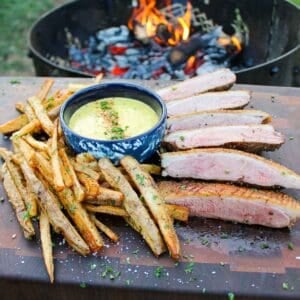
Steak Duck Frites
Ingredients
Duck:
- 2-3 Duck Breasts with fat
- 2 tbsp Canyon Crust Rub
Frites:
- 2 Russet Potatoes cut into fries
- 3 cups Rendered Duck Fat
- 1.5 tbsp Sedona Sand Rub
- Chopped Parsley garnish
- Parmesan Cheese garnish
GLD Aioli:
- 2 Garlic Cloves
- 2 Egg Yolks
- 1 cup Olive Oil
- 1.5 tbsp GLD Hot Sauce
- ¾ tbsp Canyon Crust Rub
- 2 tsp Chopped Chives
- ½ Lemon juiced
Instructions
- Slice your potatoes into fries and place them in a bowl of ice water. Let them soak until you are ready to start cooking.
- Next, lay out your duck and gently score the outside fat in a crosshatch pattern. Flip over and generously season the meat side with Canyon Crust Rub (or salt, pepper, and garlic powder).
- Next, add all the ingredients (except for the chives) for the GLD aioli to a bowl and blend using an immersion blender. Add more oil if needed to make it thicker. Once fully blended, fold in the chopped chives and set in the fridge till ready to serve.
- Preheat your grill to medium high heat (around 375F) for direct grilling.
- Add your duck breast, fat side down, to a cold cast iron skillet. Place the skillet over the fire and press firmly on each duck so that the fat sears evenly.
- Let the duck simmer fat side down for 12-15 minutes over medium heat until the fat is golden brown. Make sure to strain out the excess fat from the skillet.
- Once crispy, flip the duck breast over to the flesh side and cook for 1-2 minutes until the internal temperature is 130F for medium rare.
- Pull the duck off and let it rest for 5-7 minutes.
- Next, heat up a skillet with your strained duck fat until the duck fat is 350F.
- Dry off your fries and add them to the duck fat. Cook for about 3 minutes per side or until they are golden brown and soft in the middle.
- Do the fries in 2-3 batches so as to not overcrowd the skillet. Once the fries are done, place them on a plate with a paper towel to catch the excess oil.
- Add the fries to a bowl along with the cheese, Sedona Sand Rub and chopped parsley. Toss until coated and set aside.
- Slice your duck breast against the grain and serve with the fries and GLD aioli on the side. Enjoy!
